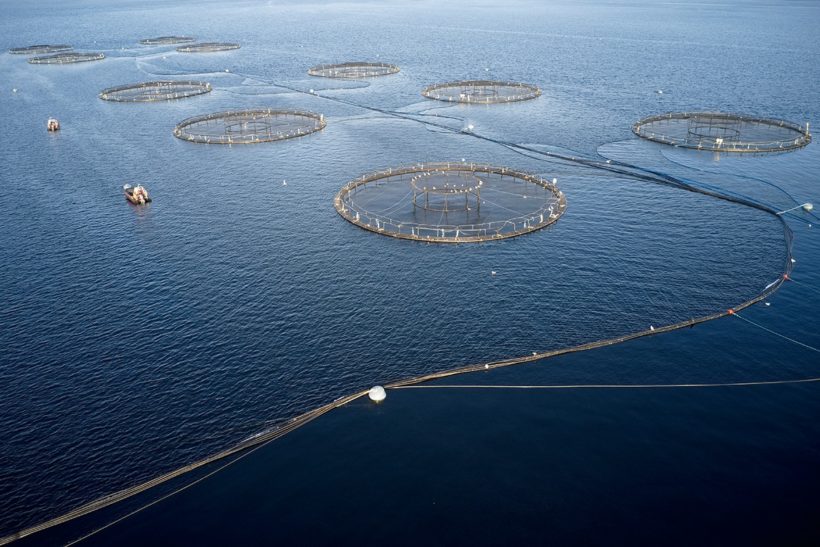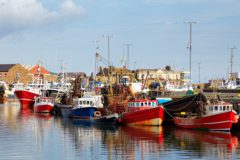The Scottish government has accepted in principle recommendations made following the first stage of a review into how fish farms are regulated.
The independent review is part of a programme aiming to make the Scottish aquaculture regulatory system more effective and transparent. Proposals include the introduction of a new single licensing payment based on the level of production at a site.
Professor Russel Griggs OBE, who led the first stage of the review, submitted his recommendations to ministers after engagement with a wide range of stakeholders.
Rural affairs secretary Mairi Gougeon said: “This is a comprehensive piece of work by Professor Griggs, and I am very grateful to him for the significant amount of time and effort that has gone into delivering it.
“I welcome the ambitious range of recommendations he has made, and we accept them all in principle.
“Aquaculture is a significant contributor to our rural economy, providing well-paid jobs in some of Scotland’s most fragile communities, and will be an essential part of our green recovery and transition to net zero.”
Other recommendations include the development of frameworks tailored to different aquaculture sectors, including shellfish and seaweed, and the establishment of a new scientific advisory body to advise government and commission work.
Professor Griggs said: “I firmly believe that this process I am recommending will deliver a regulatory landscape that promotes a thriving environmentally and economically sustainable sector based on the best knowledge we have on all issues at that time.”
Mairi Gougeon said that developing world-leading legislation for aquaculture was ‘key to developing a sector that is both environmentally and economically sustainable’.
“We will take a short amount of time to consider the proposals and maintain the momentum of this important work,” she said.
The full review is available on the Scottish government website here.
Aquaculture leasing terms updated
A comprehensive review of how Scotland’s seabed is leased for aquaculture has resulted in changes to rents and new reporting requirements.
The review covered all aquaculture sectors, and recommended rent and lease terms that fully reflect market value, drive sustainable performance, and ‘incentivise effective use of the seabed as a shared resource’.
Alex Adrian, aquaculture operations manager at Crown Estate Scotland, said: “This review was essential to ensure that we keep up with the pace of an ever-changing sector.
“Aquaculture businesses sustain jobs in some fragile, remote communities, and their operations impact the environment. We want to ensure that, in line with legislation, sustainable development is the core principle underpinning seabed leasing.”
The overall charge for finfish producers will be 1.5% of production turnover, putting them on a level playing field with other commercial users of the seabed.
An Island Communities Impact Assessment concluded that the increase was a fair reflection of consistently strong salmon prices.
Finfish tenants will also have to report on participation in collaborative management agreements. Additionally, all tenants will be required to report on the management of plastic used in the leased area.
The rent for shellfish tenants will stay the same, other than an increase in minimum rents.
Crown Estate Scotland is responsible for the leasing of Scotland’s seabed and around half the foreshore. It currently leases around 750 sites for farming.
The changes to lease terms will come into effect in phases, starting in January 2023.
This story was taken from the latest issue of Fishing News. For more up-to-date and in-depth reports on the UK and Irish commercial fishing sector, subscribe to Fishing News here or buy the latest single issue for just £3.30 here.






